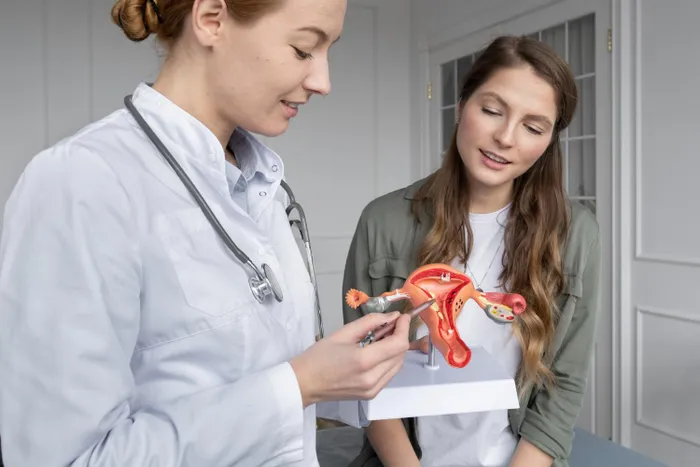Empowering women: The importance of your first gynaecologist visit

Your initial visit is usually more educational than clinical.
Image: Freepik
A woman’s first visit to a gynaecologist is a significant step in her health journey.
While it may feel intimidating, especially if there are no specific health issues, establishing a relationship with a gynaecologist early can have lasting benefits.
Understanding when to schedule that first visit, what to expect, and why it’s important helps women feel empowered and informed about their reproductive health.
When should you have your first visit?
Medical experts, including the American College of Obstetricians and Gynaecologists (ACOG), recommend that young women have their first gynecologic visit between the ages of 13 and 15.
This may seem early, but the initial visit is usually more educational than clinical.
It gives girls and young women a chance to ask questions, learn about their bodies, and get guidance in a supportive environment.
Some situations may call for an earlier or immediate visit, such as:
- Severe menstrual cramps, irregular periods, or heavy bleeding
- Vaginal discharge, odor, or itching
- Pelvic pain or discomfort
- Questions about puberty, body changes, or sexual development
- Becoming sexually active
- Considering or needing birth control
- Concerns about sexually transmitted infections (STIs)
Regardless of symptoms, women should start having routine gynecologic exams by age 21, as this is when screening for cervical cancer (Pap smears) typically begins.
What to expect during the first visit
The idea of seeing a gynaecologist for the first time can cause anxiety, but knowing what to expect helps ease nerves and prepares women for a positive experience.
A private and respectful conversation
The visit usually begins with a conversation between the patient and the gynaecologist. Topics often include:
- Menstrual cycle: when it began, how regular it is, any problems
- Sexual health and activity (if applicable)
- Contraceptive use and protection against STIs
- Personal and family medical history
- Any current symptoms or concerns
This discussion is confidential and provides a safe space to ask questions, no matter how minor or personal.
A basic physical exam
Depending on the reason for the visit and the patient’s age, the doctor may perform:
- General health check: Including height, weight, and blood pressure
- External genital exam: A quick visual check of the vulva and surrounding area
- Pelvic exam: Typically not needed for young teens or those without symptoms; usually starts at age 21 unless there are specific concerns
- Pap smear: A screening test for cervical cancer that begins at age 21
- Breast exam: To become familiar with how to perform self-checks
Patients are always told what’s happening before any exam begins, and they can ask to stop at any time. A nurse or assistant can be present if preferred.
Guidance and education
One of the most valuable parts of the first gynaecologist visit is the education provided. The doctor may talk about:
- Menstrual cycle and normal changes during puberty
- Hygiene and care of intimate areas
- Safe sex practices and contraception options
- STI prevention and testing
- HPV vaccination
- Emotional and physical changes during adolescence
This is also a great time to dispel myths and get honest, science-based answers to personal questions.
Why it’s important to see a gynaecologist
Many women delay their first visit due to embarrassment, fear, or the belief that it's unnecessary without symptoms.
However, regular gynecologic care is essential for lifelong health. Here's why:
- Early detection: Regular checkups can catch potential problems early, such as infections, growths, or early signs of cervical cancer.
- Prevention: Vaccines, screenings, and contraceptive counselling help prevent disease and unplanned pregnancies.
- Education: Gynaecologists offer reliable, age-appropriate information that can help women make informed decisions about their health and bodies.
- Comfort with care: Starting visits early helps women become comfortable discussing sensitive topics and builds a trusting relationship with a healthcare provider.
IOL Lifestyle
Get your news on the go, click here to join the IOL News WhatsApp channel.
Related Topics: